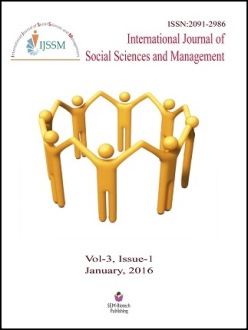Effects of Sustainable Tourism on Sustainable Community Development in Coastal Regions in the United Kingdom
DOI:
https://doi.org/10.3126/ijssm.v3i1.14003Keywords:
Sustainable tourism, sustainable community development, coastal regions, environmental managementAbstract
The main purpose of this research is to examine the effects of sustainable tourism on sustainable community development in coastal regions in the UK. This research also seeks to investigate the extent of sustainable tourism practices and the extent of sustainable community development practices in the coastal regions in the UK.
The study was conducted by deductive approach cross sectional method following quantitative techniques. The respondents are selected from hotels, restaurants, travel agencies who are operating their business activities in the coastal regions, and the local council of the coastal regions. The questionnaires survey was used to collect primary data from the respondents. The sample of 160 respondents was selected by using convenience sampling technique or on the basis of their availability and interest.
The results indicate that sustainable tourism and sustainable community development are positively and significantly correlated with each other. Similarly, regression analysis shows that sustainable tourism has significant effects on sustainable community development as β = 0.804, and P = 0.000 which is less than 0.05. Also, there is a high level of sustainable tourism and sustainable community development practices in the coastal regions in the UK.
Int. J. Soc. Sci. Manage. Vol-3, issue-1: 47-59
Downloads
Downloads
Published
How to Cite
Issue
Section
License
This license enables reusers to distribute, remix, adapt, and build upon the material in any medium or format for noncommercial purposes only, and only so long as attribution is given to the creator.




